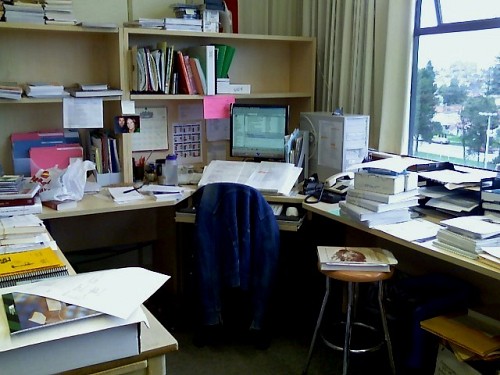How Long To Keep Documents As A Homeowner

Decluttering is one of those “gotta do it” tasks that almost everybody dreads … and sorting through piles of paperwork related to homeownership is one of the hardest parts. On the one hand, there’s a desire to chuck everything, just to (finally!) get the job done. But on the other, there’s a fear that every little scrap of paper is vital and you’d better hang on to it indefinitely.
Fortunately, we offer some guidelines to help you out of the paper clutter maze. Find out how long to keep documents you need, and what you can do to tame the document clutter monster.
How Long to Keep Documents Related to Home Ownership*
Deed. Hang on to the deed to your home or other property for as long as you own it.
Closing documents. Keep all house purchase closing documents for as long as you own the home -- plus an additional 3 years, in case you are audited by the IRS.
Records of house purchase/sale expenses. Similarly, hold onto receipts for lawyers' and brokers’ fees (and any other expenses related to buying and selling a home) as long as you own the house, plus 3 years.
Will. If you don’t already have a will, now is the time to make one, specifying who will receive your home (or your share of the home, in case of joint ownership) after you pass on. Obviously, this is one document you will need to keep for life; make sure your executor knows where it is kept.
Insurance policies. Save all your house-related insurance documents with special care – homeowners, flood, earthquake, liability, title, and mortgage. Scan paper documents so you can access them even if a disaster like fire or flood strikes your home, and keep indefinitely. Because someone may sue you for an accident that occurred on your property several years ago, it’s important to have the relevant policy (and proof of payment) still on hand.
Small purchase receipts. Retain receipts for small household items such as a coffeemaker or lamp until the end of the store’s return period. You won’t need an elaborate filing system for these, unless you frequently exchange your purchases. Simply stashing them in an envelope in date order is enough.
Medium- to big-ticket receipts. For larger expenditures like major appliances, furniture, or a kitchen remodel, scan receipts and then staple them to the warranty. These proofs of purchase are important to have on hand as long as you own the item, for several reasons:
- in case future repairs are needed within the warranty period
- as vital documentation for your home contents inventory for insurance purposes
- as proof of capital improvements for tax purposes
- to document that any remodeling was done by a licensed contractor, important when you want to sell your home
Receipts for utility bills. In some areas of the country, new homeowners are required to pay a security deposit (to be held by the utility company for a specific period) before services are connected. At the end of the time period, submit your receipts as proof that you’ve always settled your bill promptly, to receive a refund of your deposit plus applicable interest.
How to Declutter Those Mountains of Paperwork
- Scan and save as a simple way to reduce the mountains of paper. Do this for documents where it’s not essential to hang onto a signed original, such as past utility bills, once they’ve been paid.
- Go paperless in the future, wherever possible. Make the switch to digital billing, bank statements, etc. and the paperwork monster will become a thing of the past. What’s more, by cutting down on paper usage, you will be saving trees.
- Safely store the few paper documents you do need to hang onto. Deeds, wills, and the like should be stored in a fire- and waterproof box at home, in a bank safety deposit box, or at your attorney’s office. It's advisable to list your will with your state registry, as well.
* DISCLAIMER: This article is not a substitute for professional legal advice. Consult a lawyer, banker, or accountant if you are unsure whether to keep any document.
Laura Firszt writes for networx.com.
Updated October 25, 2018.
Looking for a Pro? Call us (866) 441-6648



